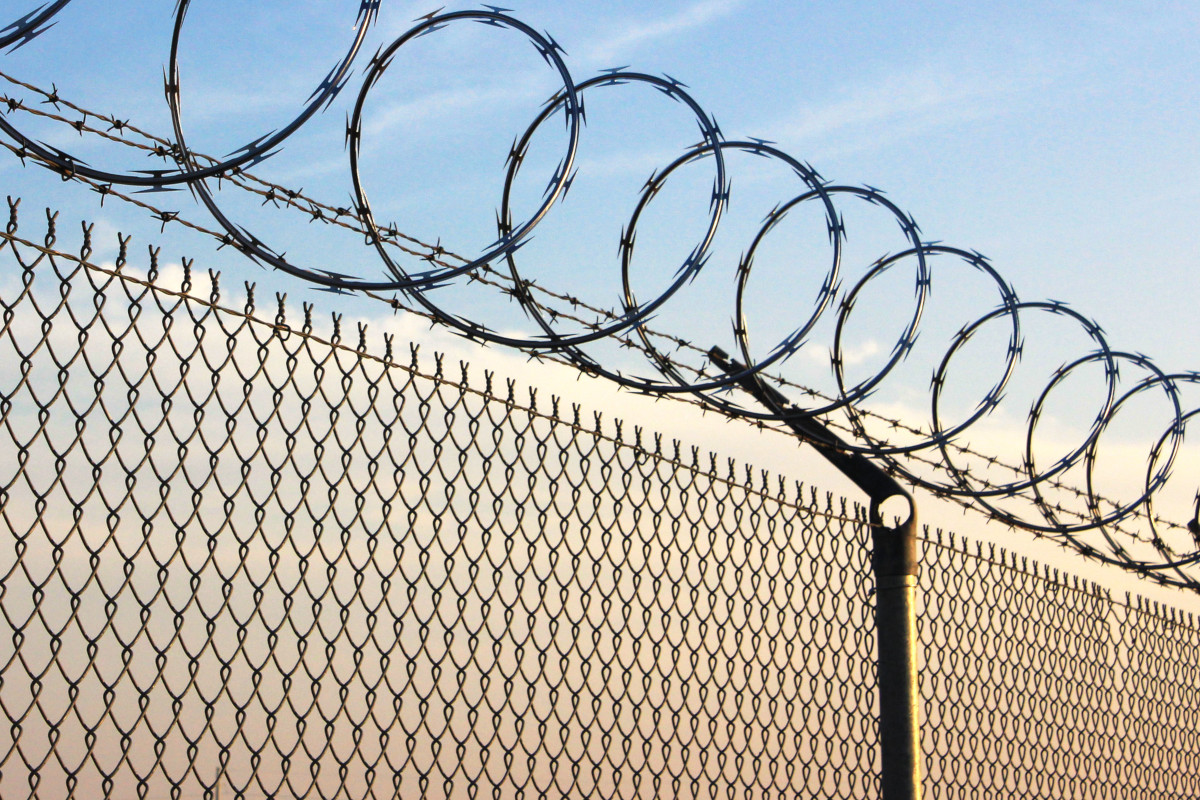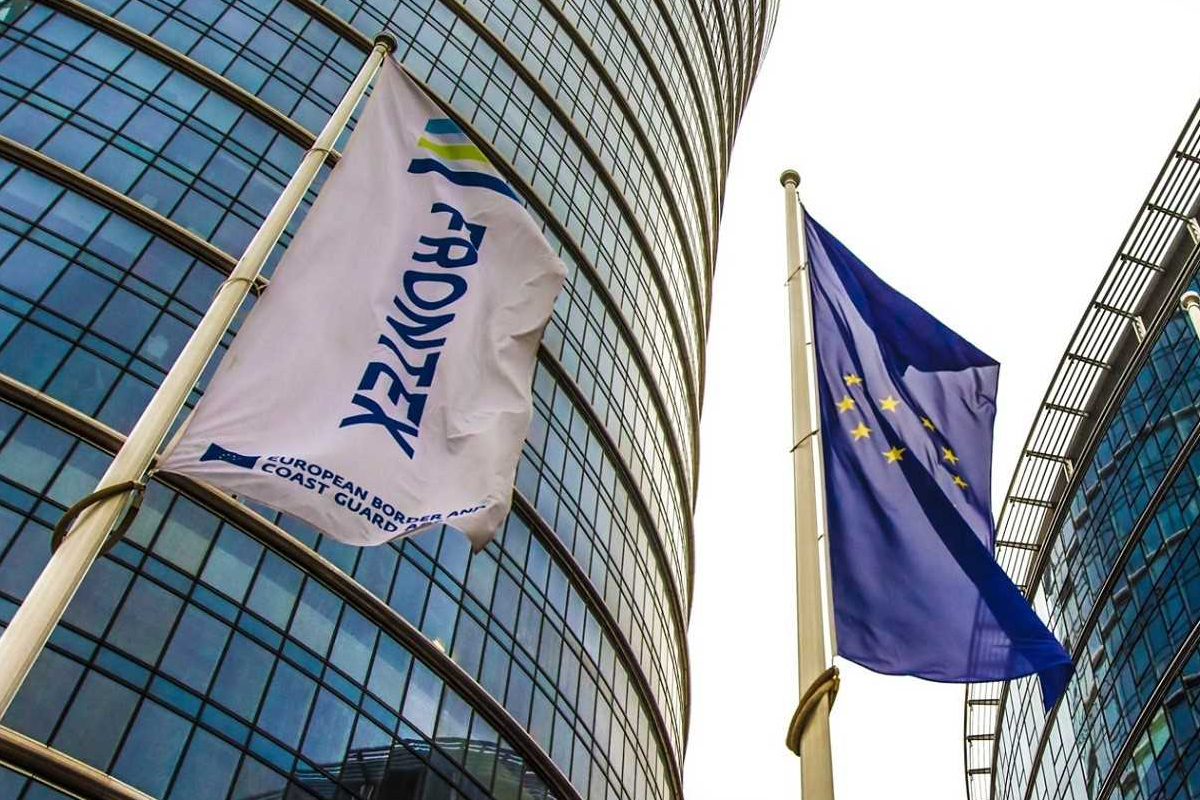Interview: “European border control degrades migrants by ruining their life expectations”
Topic
Country/Region
19 July 2021
An interview with Julien Jeandesboz, expert on border control, about the nature of “zoopolitics”, changes to the Eurodac biometric database, the development of the European Travel Information and Authorisation System, and vaccination passports.
Support our work: become a Friend of Statewatch from as little as £1/€1 per month.

By Sergio González Garrido (@sergarrid), Fundación por Causa
Data and artificial intelligence are shaping the future of humanity in ways that the society cannot yet understand . All over the world there are academics, international agencies, banks, research centres and states that have acknowledged the wonders and risks of digitalised and data-based economies, but the downsides of dependence on data storage systems remains a major concern, especially when it comes to migrants’ rights. These rapid changes often go unnoticed due to the wide range of regulations and political trends involved in the evolution to digital societies, which nowadays also includes vaccination passports in the new EU post-pandemic travel regime.
One of the most quoted experts on border control and surveillance mechanisms is Julien Jeandesboz, who is currently working at the Université Libre de Bruxelles. In this interview, Jeandesboz talks about the nature of territoriality and the dark side of detention centres, the blurred responsibility to migrants and refugees in the European Union (EU) and the transformation of the Eurodac database from a system for storing data on asylum seekers to an immigration enforcement mechanism. He also discusses how a new regulation in the making will be used to profile visa applicants by applying “information proxies” that could deny someone’s ability to reach into European soil.
Jeandesboz strives to understand and explain the complexities of such mechanisms, but his main objective is nevertheless simple: how can we pull these systems' plugs if they are proven to be erroneous, harmful, and inhuman? The expert makes the following analogy: the development of these surveillance mechanisms is comparable to the stockpiling of nuclear weapons by the USA and USSR in the midst of the Cold War.
Is it the state that makes the border or the border that makes the state?
In order to establish a state in the classical definition, a political entity that has the monopoly of authority over a certain population and territory must establish borders and define how far the authority over that territory extends to and which populations are included in it. It turns out that in Western political history these limits have taken on a territorial nature, but it has not necessarily always been the case. A number of sovereign Westphalian states have, for a long-time, exercised authority beyond their formal, legal and political borders. That is the case of colonization to a large extent. In that sense, the coincidence between the states, the territory and the borders has always been a bit more theoretical than material. And this is particularly the case when it comes to the control of people on the move. So international migrations and mobilities have been shaped for a long time by states that have exercised some form of extraterritorial authority beyond their formal borders. Since the late 19th and early 20th century we see, for example, the United States (US) putting in place ways of checking immigrants who were planning to go to live in the US to sort them out at the point of departure in European countries, which were countries of departure at that time. This was called “remote border control” by the specialist in refugee issues Aristide Zoldberg, and it is the reason why there is not necessarily a perfect alignment between the formal, the territorial and the actual borders in practice.
In your review of Vaughan William’s book Europe's Border Crisis: Biopolitical Security and Beyond, you say that the author applies ‘zoopolitical lenses’ to explain: “The dynamics of dehumanisation and anonymization that structure encounters between migrants and the European border control, especially in the context of detention practices''. In particular, it talks about the aggressive nature of borders against migrants. What can you tell us about this approach and the EU praxis in detention centers?
Quite often, the people who arrive to European borders and are unauthorised to enter are detained because they don't have the proper documents: permissions, visas and so forth. Essentially, the European border control degrades migrants by ruining their life expectations. A good example is the mostly destroyed camp of Moria on the Greek island of Lesbos. Moria came about because a number of people fled the Syrian war and arrived on this Greek island where they were held ‘temporarily’ to give time to the Greek authorities to determine their status. In the process, these people were detained in conditions that were frankly inhuman and without having committed a crime, because crossing a border is only an infraction, an action that goes against the administrative rules of European states.
What is interesting about situations like Moria is that you have people who are physically present on the territory of an EU state. Yet, legally speaking, they are not considered to have gotten into the territory. When people arrive, they are told: “Sorry, you don't have the documents, nor the visa, nor the authorisations. You can't come in. We will place you in detention and then we will sort out your situation.” Of course, the effort is to try to send these people back as quickly as possible. And very often, one of the only ways that such an expulsion can be postponed is by applying for asylum. In this case, the receiving state has the obligation under the Geneva Convention and EU rules – if it’s an EU Member State (MS) – to follow procedures to examine this asylum application. Media tend to emphasize the state of physical and mental degradation and the poor circumstances of the people who are being reported on. One of the points that Williams makes is: “They do not arrive in such a state of degradation, it is detention centres that bring them to that state.”
Regarding the EU approach as a whole, would you say the EU is cooperating to protect migrants on the move or to control them?
I think it's fair to say that in the last five to 10 years, the focus of EU measures has mostly been on repressive measures, and not really on building legal pathways or providing possibilities for people who want to travel to the EU in a safe and legal way, which are the terms that the UN Global Compact on Migration actually uses. Some EU MS, not all of them, are part of a party that have subscribed to this, but the general emphasis has not been on legal and safe pathways. Most of the focus of the EU cooperation is on what is called border management, which is in fact border enforcement, a repressive approach to people who cross borders without being authorised to do so.
European Dactyloscopy (EURODAC) is a database managed by eu-Lisa, the EU’s justice and home affairs IT agency. The database’s role relates to migrants. As we are moving forward to knowledge economies, can you explain what EURODAC does? How is it used to treat asylum applicants in the EU?
EURODAC is the second biggest system after the Schengen Information System (SIS), which was established on an EU-wide scale. Originally it was created to implement the Dublin Regulation provisions related to the decision of which MS is responsible for examining an asylum application. This is done by registering the asylum applicant’s fingerprints in the country of first entry, which is the one bound to examine the asylum application.
One of the Dublin system's perverse effects is that some MS, by virtue of their geography, like Greece, Italy or Spain are more likely to receive asylum applications than others. Therefore, one of the things that EURODAC allows MS to do is to check the fingerprints of persons who have been arrested in relation to the irregular crossing of a border. But EURODAC has evolved over time. In 2013, the system’s regulation was revised in order to allow MS law enforcement authorities to have access to the fingerprints that are stored in the system. So EURODAC evolved from being strictly an asylum system to a law enforcement system by identifying people precisely.
So is it within the scope of the New Pact of Migration and Asylum to upgrade the EURODAC system to these new measures? Registering more data to develop an enforcement mechanism?
Yes, it has been extremely controversial. A number of parliamentarians, but also MS, are very reluctant to open the “can of worms” because there is so much contestation regarding EURODAC and the Dublin system. Reopening this discussion might lead to either a much more restrictive system or suspicion that some MS who want to tear apart the Dublin system and the Common European Asylum System, the usual suspects, would actually be empowered to do so. It is part of the package of legislation that is associated with the new pact.
In 2018, new Eurodac amendments were announced to lower the age at which fingerprints could be taken from 14 years of age to six. What are the main concerns related to these reforms?
Well, I think one concern is the issue of consent because 14-year old children are not capable of consenting to their data being collected and processed as they are minors, legally speaking, but you could foresee how to make sure that a 14-year-old child understands what is going on. For a six-year old or even slightly older, this is an imposition. The second issue is that you will have people since childhood that will have data stored in the system, so they will become trackable from a very young age onwards. Increasing the number of foreigners that you make trackable in the EU raises two questions: Is the objective to store the data of every single foreigner that has ever crossed the EU borders? What does this tell about European societies and their evolution?
What is your point of view over the main concerns about the “informationalization” of border management, the “vaccination passports” and the consequences it may trigger on national biometric control systems as information-based frontiers?
The most obvious trend is the cumulation and massification of data through the systems that are either already operational or foreseen to be deployed next year. Essentially, we’re getting to a stage where all foreigners who either plan or are crossing the external EU borders will be registered in a system including biometrics, biographical information and sometimes, more in-depth information about socio-economic status. It is a big issue having information on nationality because if you cannot establish the nationality of people, you cannot deport them because you don't know where to send them back to.
You can try to just to circumvent this by saying: “It is because we have concerns with serious crimes, with terrorism”, but at the end of the day it is only because they are foreigners. The second trend is a bit technical. There is a tendency to increasingly use the data in a future-looking perspective. The issue is no longer just to keep the data in case the person does something illegal or overstays their visa, it is also to use the data in order to see whether the person fits a certain pattern of risk when it comes to irregular migration now or in the future. Essentially, this is “profiling”: trying to identify people that are not known for any particular reason because they fit a certain pattern that might lead you to believe that in the future they could either pose a security, immigration or a public health risk. That is the narrative.
It is easier for an Australian citizen or a US citizen to get into European soil than many other nationalities around the world. Is this system based on a discriminatory and colonialist approach regarding the visa management system?
(He smiles) It is complicated because, yes, it is easier for a citizen of a Western country to travel to the EU for short stays because they do not have visa requirements. One of the things that explains the visa requirements concerns “migration risks”. Visa-required countries are among some of the poorest countries in the world or that are experiencing the most tragic levels of conflict. When it comes to colonialism, it can go both ways. For example, a very large number of Latin American countries are no longer visa required. Why? Because Spain and to a lesser extent, Portugal, have lobbied to lift the visa requirements for countries like Colombia or Argentina.
The European Travel Information and Authorization System (ETIAS) is currently being developed. It puts in place a travel authorization for people from countries who are visa exempt, mostly Western countries, but also Western Balkan and some Latin American countries. If you want to travel to the EU, you will have to apply before you travel for an authorization by submitting some personal information: personal data, including employment, the city where you live in and so on and so forth. The entire system will check your records against watch lists and risk criteria. That is profiling. In most cases, it is likely that you will be authorised to travel, but in a number of cases you will not. EU legislation says you cannot use discriminatory criteria to profile the travellers, but you can use proxies. There are cities in the US that are known for being the places in which certain communities live, like the Somali diaspora. You could use these proxies to indeed have some kind of discriminatory treatment.
Further reading
- Senegal: Biometric population database will facilitate deportations, restricted EU document confirms (14 April 2021)
- "Artificial intelligence" could be used to screen and profile travellers to the EU (26 February 2021)
- Automated suspicion: The EU's new travel surveillance initiatives (July 2020)
Image: woodleywonderworks, CC BY 2.0
Our work is only possible with your support.
Become a Friend of Statewatch from as little as £1/€1 per month.
Spotted an error? If you've spotted a problem with this page, just click once to let us know.

